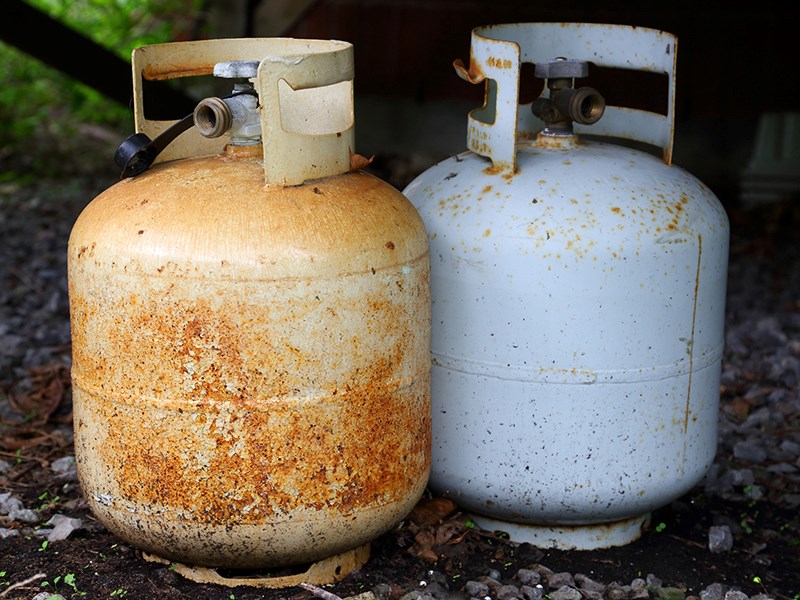In our attempts to avoid the landfill, or, let’s be honest, to avoid paying for garbage by tossing something into the recycling, we can unwittingly create a hazard. Sharp, biohazardous, poisonous, flammable and pressurized materials all need to be specially managed when they are disposed of. Throwing any of these into a recycling bin can be a recipe for disaster.
Life in a recycling facility is fast-paced, with materials getting sorted by hand then mixed, shredded and crushed. To save space, recyclables are often tightly baled in a machine by being exposed to hundreds of pounds of pressure and then tied with strapping. Now imagine a butane canister in that environment, and you could have an accidental bomb in the making.
Across BC there have been seven fires already this year at Recycle BC post-collection processors. This non-profit organization, which is responsible for curbside recycling and the lion’s share of what is collected at our recycling depots, has noticed a nearly 50 per cent increase in the presence of hazardous materials in the past five years. The most common culprits have been batteries, propane and butane canisters, ammunition, knives and bear spray.
We could add to this list of dangerous materials: hypodermic needles, used engine oil, flares, paint, cell phones, laptops and hazardous liquids of all kinds.
If you’re wondering where to recycle something, there are two handy tools right at your fingertips. The Recycling Council of BC’s app, Recyclepedia, is a great place to start. Users enter the item they want to recycle along with their location and are directed to where to take it. Another great go-to for us in Powell River is the Waste Wise Guide, available online as a pdf, which lists all the ins and outs of local recycling options. Here’s a brief cheat sheet for you now:
1. Household batteries and cell phones can go to most recycling depots, Rona and Canadian Tire. Rechargeable batteries can be taken to Staples and automotive batteries can be dropped off at Canadian Tire or Augusta Recyclers.
2. Propane canisters and tanks, butane canisters, labelled expired pesticides, used engine oil and other labelled hazardous liquids can be brought to Augusta Recyclers, where disposal fees may be applied.
3. Any lubricant oil, oil filters, oil containers, antifreeze or antifreeze containers can be brought to Sunshine Disposal and Recycling on Wednesdays or Saturdays between 10 am and 4 pm for free recycling.
4. Alert RCMP about any discarded ammunition, flares or explosives you find.
5. Prescription medication should be taken out of its packaging and placed in a ziplock to a pharmacy for disposal. Most packaging can be recycled at depots or curbside. Alert the fire department about any discarded hypodermic needles found in the community.
6. Used or empty paint cans can be brought to Rona or Augusta.
7. Residential light bulbs can go to Rona, Canadian Tire or Augusta. Be careful to avoid smashing them, as some contain harmful gases.
The journey to zero waste need not be an explosive one. When in doubt, check in with depot staff or Let’s Talk Trash about questionable recyclables.
Let’s Talk Trash is qathet Regional District’s waste-reduction education program.



